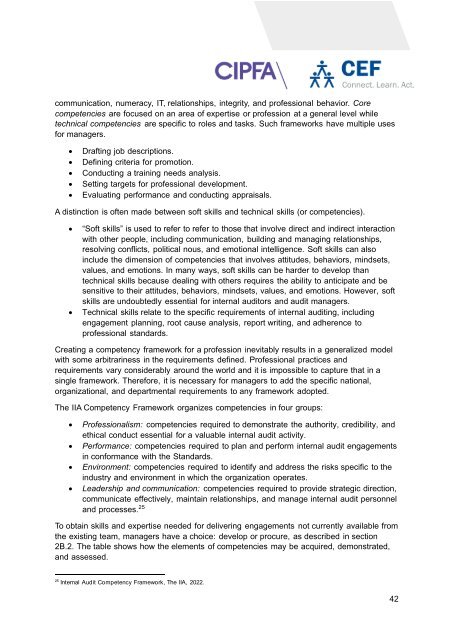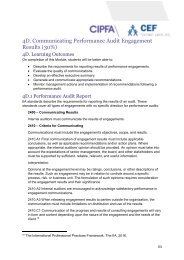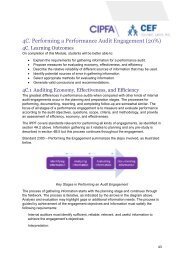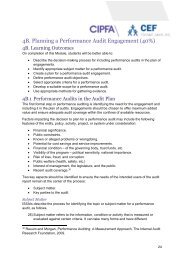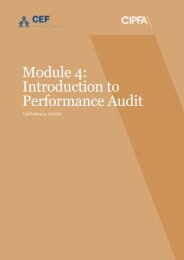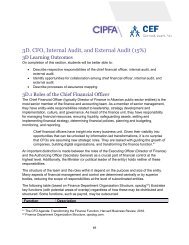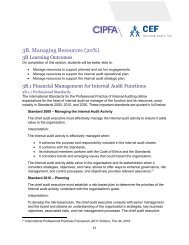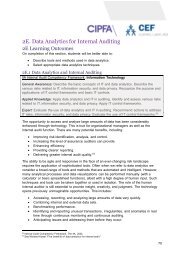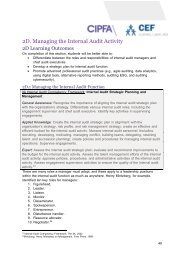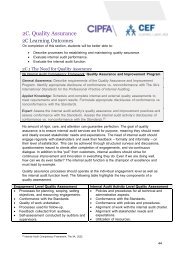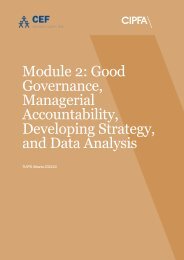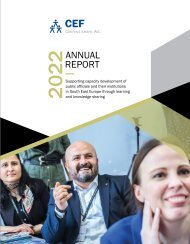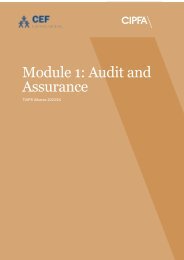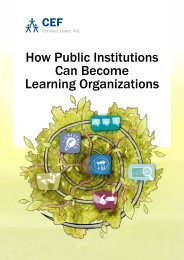TIAPS ALB_Module 2B. Managing People
- No tags were found...
You also want an ePaper? Increase the reach of your titles
YUMPU automatically turns print PDFs into web optimized ePapers that Google loves.
communication, numeracy, IT, relationships, integrity, and professional behavior. Core<br />
competencies are focused on an area of expertise or profession at a general level while<br />
technical competencies are specific to roles and tasks. Such frameworks have multiple uses<br />
for managers.<br />
• Drafting job descriptions.<br />
• Defining criteria for promotion.<br />
• Conducting a training needs analysis.<br />
• Setting targets for professional development.<br />
• Evaluating performance and conducting appraisals.<br />
A distinction is often made between soft skills and technical skills (or competencies).<br />
• “Soft skills” is used to refer to refer to those that involve direct and indirect interaction<br />
with other people, including communication, building and managing relationships,<br />
resolving conflicts, political nous, and emotional intelligence. Soft skills can also<br />
include the dimension of competencies that involves attitudes, behaviors, mindsets,<br />
values, and emotions. In many ways, soft skills can be harder to develop than<br />
technical skills because dealing with others requires the ability to anticipate and be<br />
sensitive to their attitudes, behaviors, mindsets, values, and emotions. However, soft<br />
skills are undoubtedly essential for internal auditors and audit managers.<br />
• Technical skills relate to the specific requirements of internal auditing, including<br />
engagement planning, root cause analysis, report writing, and adherence to<br />
professional standards.<br />
Creating a competency framework for a profession inevitably results in a generalized model<br />
with some arbitrariness in the requirements defined. Professional practices and<br />
requirements vary considerably around the world and it is impossible to capture that in a<br />
single framework. Therefore, it is necessary for managers to add the specific national,<br />
organizational, and departmental requirements to any framework adopted.<br />
The IIA Competency Framework organizes competencies in four groups:<br />
• Professionalism: competencies required to demonstrate the authority, credibility, and<br />
ethical conduct essential for a valuable internal audit activity.<br />
• Performance: competencies required to plan and perform internal audit engagements<br />
in conformance with the Standards.<br />
• Environment: competencies required to identify and address the risks specific to the<br />
industry and environment in which the organization operates.<br />
• Leadership and communication: competencies required to provide strategic direction,<br />
communicate effectively, maintain relationships, and manage internal audit personnel<br />
and processes. 25<br />
To obtain skills and expertise needed for delivering engagements not currently available from<br />
the existing team, managers have a choice: develop or procure, as described in section<br />
<strong>2B</strong>.2. The table shows how the elements of competencies may be acquired, demonstrated,<br />
and assessed.<br />
25<br />
Internal Audit Competency Framework, The IIA, 2022.<br />
42


